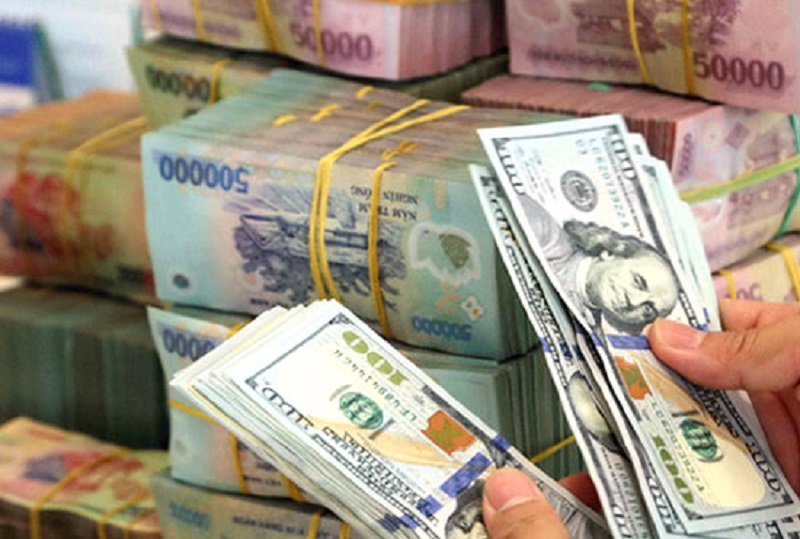The exchange rate remains a cushion for Vietnam's economic growth
Mr. Nguyen Minh Tuan, CEO of AFA Capital, believes that the exchange rate and inflation remain buffers for Vietnam's growth this year. If the exchange rate rises, it is not always bad for the economy; nonetheless, it must be controlled.

Rapid volatility in exchange rates
Spot exchange rates have fluctuated significantly in recent days. On June 26, the average spot exchange rate was 25,530 VND/USD; by July 5, it had dropped to 23,750 VND/USD. Thus, the exchange rate difference has reached 220 points in just 10 days, which Mr. Tuan considers to be a rather quick growth.
Mr. Tuan offers some insights on the two elements of inflation and GDP.
First, the inflation index for this month has risen in comparison to the previous month. Inflation in 2023 is expected to be 2% higher than in 2022. Since the beginning of the year, the average inflation rate has been 3.29%. In comparison to this year's aim of 4.5%, Vietnam has a comparatively substantial safety buffer of roughly 1.2%. Analysts predict a decreasing trend in inflation this year, owing to factors such as low oil costs and steady tuition rates.
Second, GDP in the second quarter is 4.14%, whereas GDP in the first two quarters is 3.72%. As a result, there is still a significant distance between us and our goal. According to the expert, the trend of monetary easing would continue in the third and fourth quarters.
Another factor to consider is the economy's durability in the next quarters. Currently, Vietnam's GDP will be dominated by the industrial and service sectors, while credit growth has been limit ed to 3.58% since the beginning of the year.
Low credit growth implies a poor economy's absorption capability, owing to a considerable fall in credit demand and a lack of export orders for enterprises. Furthermore, certain consumer groups have demands but do not fit the lending criteria or encounter legal barriers.
Banks will confront two challenges in this scenario. For starters, if the cost of capital, including client deposits, continues high, banks will find it difficult to decrease lending rates and push credit into the market. Input interest rates for the 6-month period have been high since November, despite a recent trend of decreasing.
Third, while 12-month interest rates for major commercial banks will remain stable, input interest rates must fall in order to assist cut output interest rates and boost credit expansion.
Banks now have extra liquidity when 6-month term deposits mature, which helps cut lending rates by 1-1.2%. However, the money do not flow into genuine loan needs and instead remain in the interbank market, resulting in a trend of acquiring USD and putting pressure on the exchange rate.
Some credit outlets, such as the issuance of a 120,000 billion VND package, have just begun to flow. However, more credit-boosting measures are required. "To understand the exchange rate situation, we need to look at credit issues," CEO of AFA Capital explained.
Accelerating capital into the economy
During this time, it is critical to encourage credit development for companies in need of capital and to resolve administrative procedures firmly, ensuring that funds flow into regions in need of expansion.
Mr. Tuan anticipates that the State Bank of Vietnam will implement measures to balance interest rates between the two markets, ensuring that interbank market interest rates are not excessively low and allowing interbank market short-term capital to flow through credit channels, lowering the cost of capital for businesses.
If the interbank market remains oversaturated, it may be feasible to influence it through operations that attract money through treasury bills in order to avoid major interest rate differentials at this time. Mr. Tuan also expects that at a new price level, the State Bank of Vietnam will be able to acquire more USD in order to boost foreign exchange reserves.

According to Mr. Tuan, the exchange rate and inflation act as buffers for Vietnam's economy this year, implying that it is not necessary to keep the VND too high. If the exchange rate rises, it is not always bad for the economy; nonetheless, it must be regulated.








